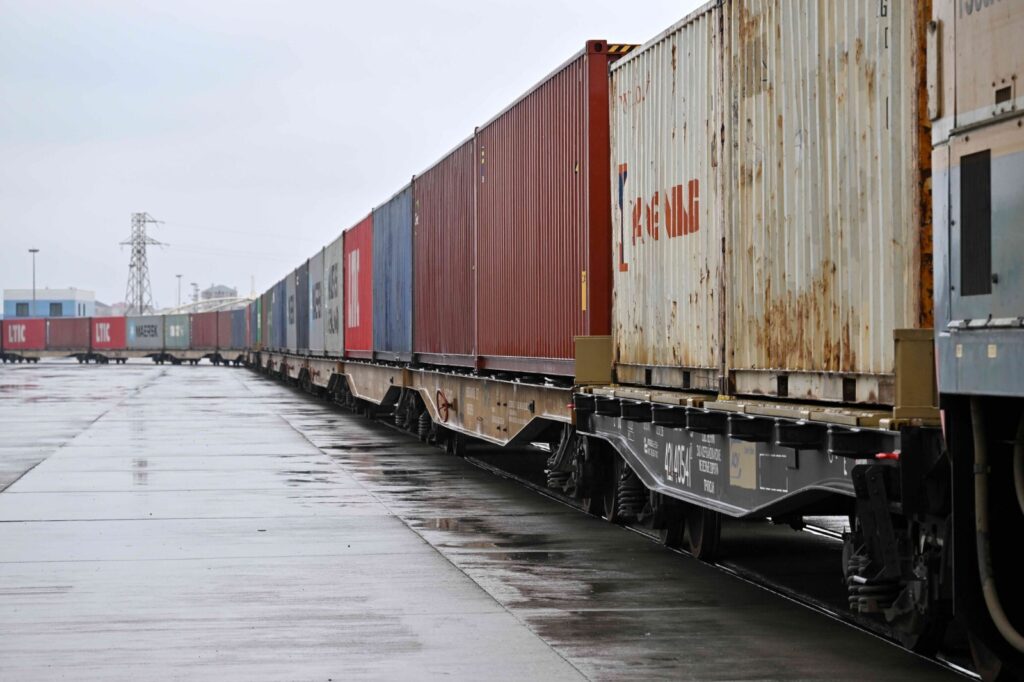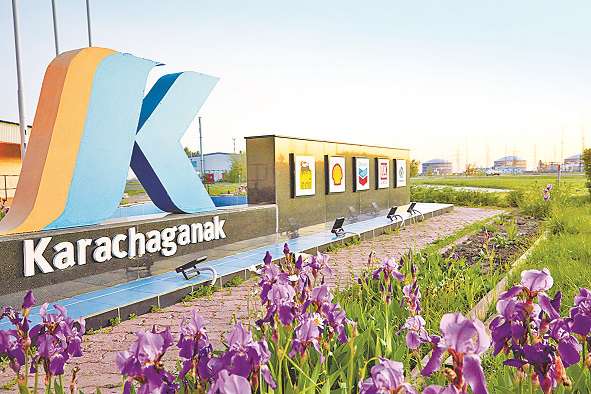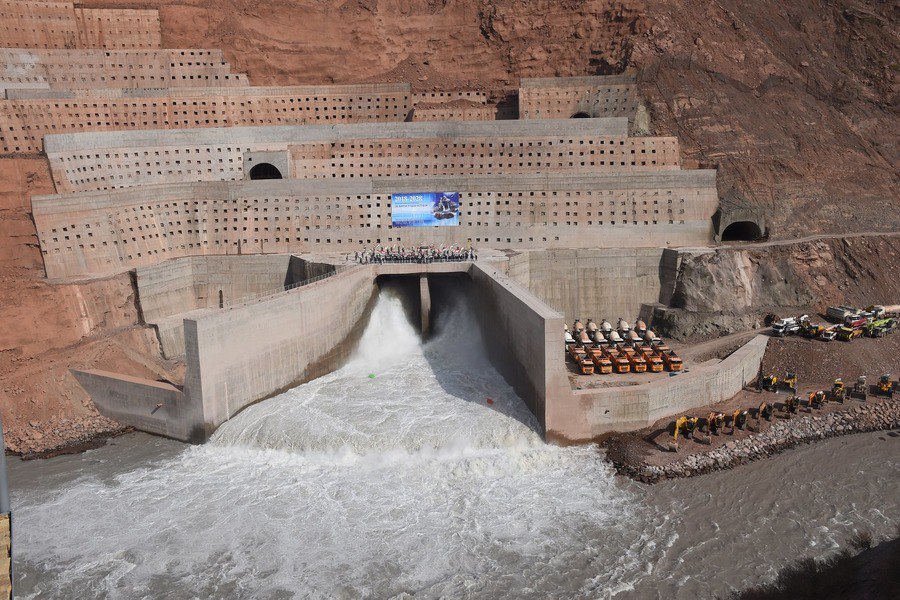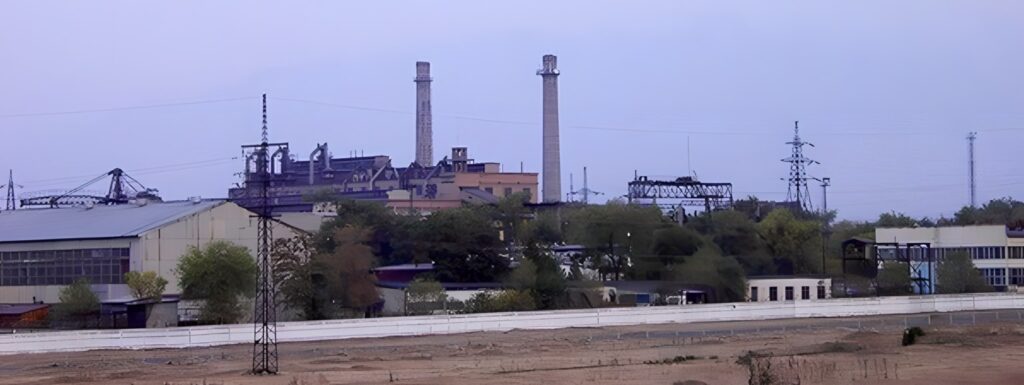Viewing results 883 - 888 of 1313
The Eurasian Development Bank’s (EDB) Annual Meeting and Business Forum, to be held in Almaty, Kazakhstan on 27-28 June, is to focus on cross-border transport corridors in Eurasia. The EDB is a multilateral development bank serving Armenia, Belarus, Kazakhstan, Kyrgyzstan, Russia, and Tajikistan. According to the EDB press service, this year’s forum session, “The Eurasian Transport Network: Potential, Challenges and Solutions” will analyse a report on the development of cross-border transport corridors crucial to the region’s economies. The report highlights the significant constraints in economic development posed by the remoteness of Central Asian countries from global markets and their landlocked status. According to EDB estimates, trade costs in some Central Asian nations are 40% higher than those of coastal states. Overcoming the lack of transport connectivity is key to unlocking the strong economic potential of all Central Asian countries. The concept of the transport network is based on the premise that linking East–West and North–South transport corridors generates synergies, creating new routes, logistics opportunities and better through tariffs. The EDB projects that freight traffic along the three main corridors crossing Central Asia (Central Eurasian Corridor, TRACECA and North–South) could potentially increase by almost two-thirds to 1.7 million containers (TEU) by 2030. Implementing this objective will require concerted efforts from all participating countries.
Technip Energies NV, a French engineering and technology company in the energy sector, has entered into a five-year service agreement with Karachaganak Petroleum Operating B.V. (KPO) to develop the Karachaganak field in northwest Kazakhstan. According to representatives of Technip, the agreement covers a wide range of services, from consulting and conceptualization to detailed design of facilities and infrastructure. The project will be implemented through the joint venture TKJV LLP, created by Technip Energies in cooperation with the Kazakh company KPSP. Technip Energies is already engaged in projects in Kazakhstan, including the production of "green hydrogen" (Hyrasia One) and the construction of a gas processing plant at Kashagan. Earlier, Kazakhstan's energy minister, Almasadam Satkaliyev, announced the implementation of investment projects to expand Karachaganak. These projects are planned until 2028 and will maintain the production shelf at 11 million tons annually.
About 70% of the electricity generated after the Rogun hydroelectric power plant (HPP) in Tajikistan reaches full capacity will be exported to other Central Asian countries. This is according to agreements signed with Uzbekistan and Kazakhstan, which Tajikistan's minister for energy and water resources, Daler Juma, announced at a recent meeting of the energy ministers of Shanghai Cooperation Organization (SCO) member states in Astana. “The Republic of Tajikistan, which has a huge hydropower potential, continues the construction of the Rogun HPP with a capacity of 3,780 MW. The Rogun HPP ensures the energy security of the Republic of Tajikistan and contributes to increasing the volume of exports to neighboring countries. It should be noted that 70 percent of the produced products are exported to cover the growing demand in the region's countries,” said Juma. Construction of Rogun the HPP began in 1976, but it was suspended in 1991 after the collapse of the USSR. Subsequently, Tajikistan continued constructing 600 MW hydroelectric power stations, as outlined in the project, using its resources and support from international funds and organizations. Two of the six aggregates have already been operational, and the third is planned to be operational in 2025. Juma reported that the two hydraulic units produced more than 7 billion kWh of electricity.
The Statistics Agency of Uzbekistan has presented information on the country’s foreign trade turnover for January - May 2024. The republic’s foreign trade turnover (FTT) reached $26.7 billion during the reporting period. The volume of exports was $10.8 billion, and the volume of imports was $15.8 billion. Compared to the same period last year, the volume of exports increased by 1.9%, and the volume of imports increased by 3.7%. Uzbekistan's negative foreign trade balance has reached $5 billion. China has retained its position as Uzbekistan's largest trading partner. During the reporting period, the volume of mutual trade reached $5 billion, which is 18.9 % of the republic's total foreign trade turnover. A significant segment of foreign trade turnover was also registered with Russia (17.9%), Kazakhstan (5.9%), Turkey (4.5%), and South Korea (3.4%). Top 10 countries with the highest share in foreign trade turnover of Uzbekistan in January-May 2024 were: China – $5.05 billion; Russia – $4.78 billion; Kazakhstan – $1.58 billion; Turkey – $1.19 billion; Korea – $920 million; France – $471 million; Turkmenistan – $455 million; Germany – $426 million; the USA – $386 million; and Afghanistan – $382 million. For the five months in question, exports without gold increased by 5.9%, almost $6.58 billion. During this period, the share of gold exports decreased from 40.3% to 38.6 %, or $4.2 billion. Furthermore, the share of industrial products in total exports rose from 15.8% to 15.9%, chemicals from 4.3% to 5.6%, mineral fuels from 3% to 3.2%, and machinery and transport equipment from 4.5% to 4.6%, whilst the share of food products and live animals decreased from 6.3% to 5.8%. Machinery and transport equipment (37.3 %), industrial goods (15.2 %), and chemicals and similar products (12.3 %) accounted for the largest share of imports.
Kazakhstan's minister of national economy, Nurlan Baibazarov, has announced that the country is to repair its water management system following recent severe floods. "The floods that took place in the spring showed the underdeveloped infrastructure of the country's water management system. We have identified 16 projects that require investments of more than 500 billion tenge [over $1 billion]," Baibazarov said. According to the minister, preferential financing will come from from the Saudi Islamic Development Bank. Funds are provided for an extended period at a very low rate, enabling the resolution of long-standing issues in this sector. The renovation of the water management system will include the construction of reservoirs and irrigation canals and the fortification of the technical infrastructure for all services. "First of all, according to the instructions of the head of state, we will carry out a complete renewal of equipment and facilities in the Ministry of Emergency Situations system. In the water sector, we will also equip the Kazvodkhoz system with the necessary equipment," Baibazarov added.
The authorities in Kyrgyzstan will spend 1.6 billion som ($18m) to pay the Kara-Balta Mining Combine's tax debts. In addition, the enterprise's specialists will be paid wages they have yet to received in years. Earlier, Kyrgyz President Sadyr Japarov instructed the government to take measures to preserve jobs and assets. He also demanded that all the plant's facilities be restored for fully-fledged work with uranium. "Thus, the enterprise has created favorable conditions for sustainable work, and most importantly all unique specialists have been preserved," the General Director of the Karabalta Mining Company LLC, Kubanychbek Risbaev stated. The Kara-Balta Mining Combine was built in 1955 and was one of the largest uranium processors for the nuclear industry of the USSR. In the 1990s, the plant was privatized and sold to a foreign company. Unsuccessful management by the new investors led to a sharp decline in production, and in 2016, the mill suspended its uranium operations and was declared bankrupt in 2022. In 1998, Combine's laboratory was accredited by the UKAS service and was tested by the London Precious Metals Association a year later. Since then, Kyrgyzstan has officially become a trading participant at the London Metal Exchange. The ongoing modernization work includes the launching of additional facilities, and the introduction of new technologies and modern equipment.






